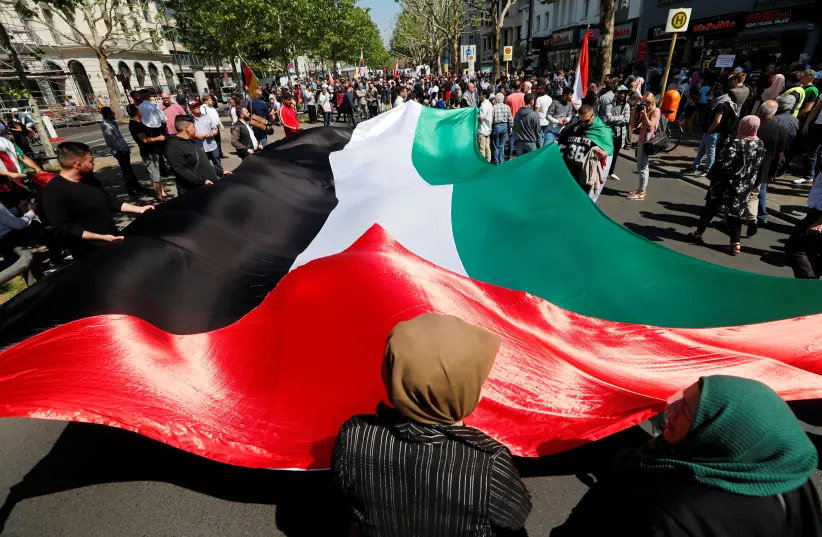Israel creating conditions for own destruction, Iran’s IRGC chief says
Israel is creating conditions for its own destruction, Iran’s Revolutionary Guards commander said on Friday during a Jerusalem Day rally in which the country’s new domestically-made Kheibar Buster missile was displayed.
State television said millions of Iranians joined rallies marking Quds Day, the Arabic name for Jerusalem, in state-organized marches across the country.
It showed the Israeli flag being set on fire and groups of people around the country shouting choreographed “Death to America, Death to Israel” slogans.
President Ebrahim Raisi, Iran’s military commanders and senior officials also attended the rallies in which people were allowed to march through the streets, the first time since the outbreak of the coronavirus pandemic two years ago.
Iran’s Jerusalem Day rallies are held annually in support of Palestinians, who want east Jerusalem as the capital of a future state in territories captured by Israel in the Six-Day War, on the last Friday of the Muslim fasting month of Ramadan.
Protesters hold a large Palestinian flag during a demonstration marking al-Quds Day (Jerusalem Day), in Berlin, Germany June 1, 2019 (credit: REUTERS/FABRIZIO BENSCH)
“Stop your vicious deeds. You know well that we are people of action and reaction,” Revolutionary Guards commander Hossein Salami, addressing Israel, told demonstrators in Tehran.
“Our responses are painful. You create conditions for your own destruction. We will not leave you alone …You know better than me what will befall you if you take evil action.”
Israel, whose existence the Islamic Republic does not recognize, has long threatened military action against Iran if talks between Tehran and world powers fail to curb Iranian nuclear activity. Iran says its nuclear ambitions are peaceful.
In February, the Islamic Republic unveiled its “Kheibar Buster” missile with a range of 1,450 km (900 miles).
Iran, which has one of the biggest missile programs in the Middle East, says its ballistic missiles have a range of up to 2,000 km (1,200 miles) and are capable of reaching its arch-foe Israel and US bases in the region.
Kheibar refers to an ancient Jewish oasis in the Arabian Peninsula’s Hijaz region that was overrun by Muslim warriors in the 7th century.
Tehran regards its ballistic missile program as an important deterrent against the United States, Israel and other adversaries, and has rejected Western demands to halt it.
Over the past year, Iran and the United States have engaged in fitful, indirect talks in Vienna to revive a 2015 nuclear deal that then-president Donald Trump reneged on in 2018 and that Iran, in turn, began violating in 2019.
Under the 2015 deal, Iran agreed to limit its nuclear program in return for relief from economic sanctions.
While they appeared close to resurrecting the deal in March, talks stalled over last-minute Russian demands and whether Washington might drop Iran’s Revolutionary Guards from its Foreign Terrorist Organization list.
Source: https://www.jpost.com/breaking-news
